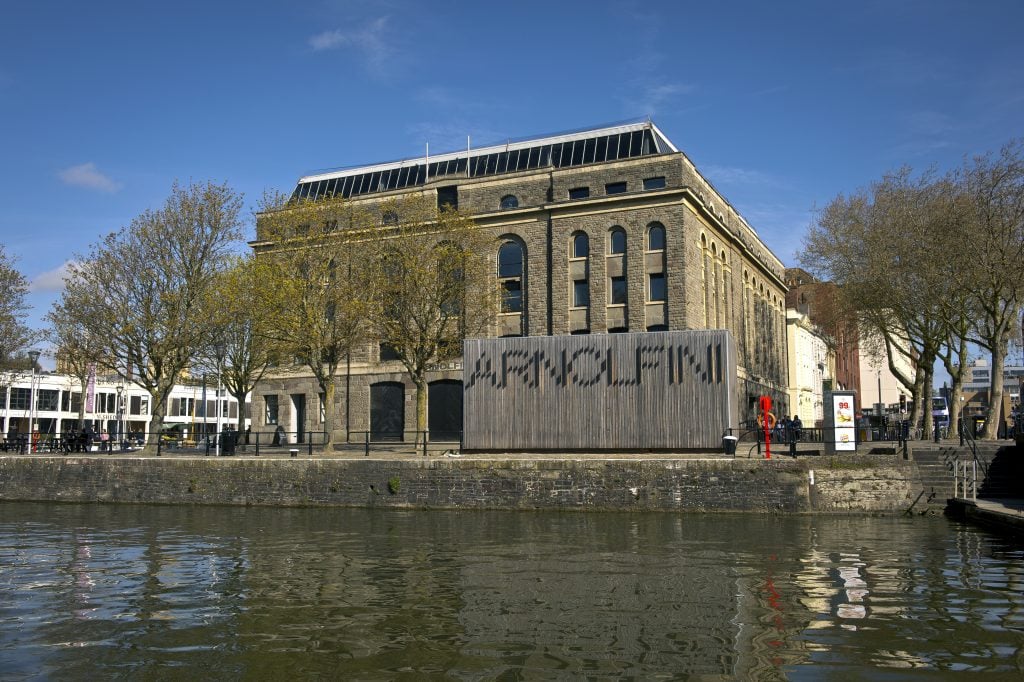Art World
Political Statements Could Jeopardize Funding, Warns Arts Council England
The update regarding political statements follows criticism of some art organizations' handling of issues relating to the Israel-Hamas conflict.

The update regarding political statements follows criticism of some art organizations' handling of issues relating to the Israel-Hamas conflict.

Margaret Carrigan

The Arts Council England (ACE) has warned organizations to be cautious of “overtly political or activist” statements made by individuals who may be linked with them. The council suggests that the expression of personal political beliefs may expose arts organizations to “reputational risk” that could jeopardize funding agreements.
The advice is part of a series of updates made at the end of January to the council’s 2023–26 Relationship Framework policies, which outline the conditions required for council support.
Among a list of examples that increase reputation risk that range from fraud or corruption to inconsistent measures for diversity or equality, there is a notable addition that cites “activity that might be considered to be overtly political or activist and goes beyond the [an organization’s] core purpose and partnerships with organizations that might be perceived as being in conflict with the purposes of public funding of culture.”
The guidance also states: “Reputational risk can be generated not just by the organization and its decisions but also by staff and other individuals associated with the organization acting in a personal capacity.”
“For a cultural sector to thrive, freedom of expression—personal, artistic, and political—is indisputably vital… It is something we will always strive to protect, and in furtherance of this, our updated relationship framework explicitly reiterates our commitment to artistic freedom. It is right that our funding will be used to support work that will be perceived as political or controversial,” the council said in a statement.
“We also recognize, however, that the context in which artists and organizations are currently working is more polarized than ever before, and that conversations, particularly on social media, can lack nuance,” the statement continued. “Our guidance is intended to support organizations in balancing the vital right of freedom of expression with the need to ensure that they, their staff, and their communities are considered, and kept safe.”
The council added that if individuals working in public-facing positions in cultural organizations are planning to undertake activity, even in a personal capacity, that might be deemed controversial, they should discuss this with their board in order to agree a plan to mitigate any risks that might arise.
The update regarding political statements follows backlash that a spate of ACE-funded organizations have faced over their handling of issues relating to the Israel-Hamas conflict.
In January, the Collections Trust—a taxpayer-funded organization that works with museums, galleries, libraries, and archives to improve the management and use of their collections—was criticized for linking to a third-party inclusive terminology guide on its website that described Hamas as “anti-colonial freedom fighters” and warned of the “pro-Israel Western media.”
The trust called a Telegraph article highlighting the terminology’s inclusion as “highly misleading” but sought to distance itself from the group that had published the guide and deleted its link to the resource, saying in a statement that it was “the first anyone at Collections Trust knew about any section on Palestine within this external resource.”
Shortly thereafter, the Arnolfini Gallery, a contemporary arts center in Bristol, U.K., issued an apology for its decision to cancel two events as part of the city’s Palestine Film Festival in November.
The cancelled events included a screening of Farha (2021), a coming-of-age film by the Jordanian-Palestinian writer Darin J. Sallam, and a poetry night headlined by the rapper and activist Lowkey. The film screening was moved to the arts charity Watershed, while a department store hosted the poetry event.
Nearly 2,000 people signed an open letter to express their discontent over the cancellations. “These events were intended to explore the issue of increasing silencing and censorship of Palestinian and pro-Palestinian voices in the arts,” the letter read.
Explaining its original decision to drop the events, Arnolfini cited the “difficulty for arts charities hosting events that might be construed as political activity.”
Immediately following the criticisms, ACE did not comment other than to note that its funding recipients are “responsible for their own operations, including artistic programme decisions and day-to-day management of their activities.”
According to the ACE’s latest advice, arts organizations are urged to use a series of updated prompts as an evaluation tool when considering an activity that could cause reputational risk. These include checking if the action is compliant with charity law, that it is consistent with ACE’s Inclusivity and Relevance Investment Principle, and whether there are any safety or security risks associated for staff or audiences.
Additionally, organizations should determine if there is “likely to be” any damaging press of social media coverage and whether individuals working for the organization have failed to comply with its social media policy.
“The Arts Council has a responsibility as stewards of public funding to ensure that all the organizations and individuals we support use our investment for the purposes it was intended,” ACE said in its updated Relationship Framework policies. “We expect our grant recipients to use their grants efficiently and effectively to maximize benefits to the public… it is especially important that we are confident we are investing in well-run organizations.”
The council’s 2023–26 National Portfolio program is made up of 990 organizations receiving a combined £446 million ($560 million) per year. The U.K.’s Department of Culture, Media and Sport will be conducting a full-scale review into ACE this year. The organization was earmarked for review in the 2023/24 financial year in 2022 by the Conservative Party MP Jacob Rees-Mogg, then minister for Brexit opportunities and government efficiency, to decide the future of public bodies such as ACE.